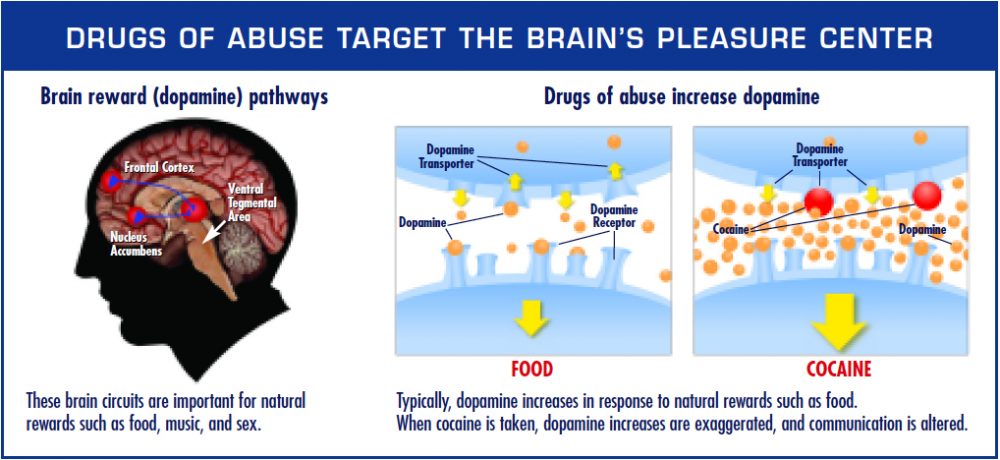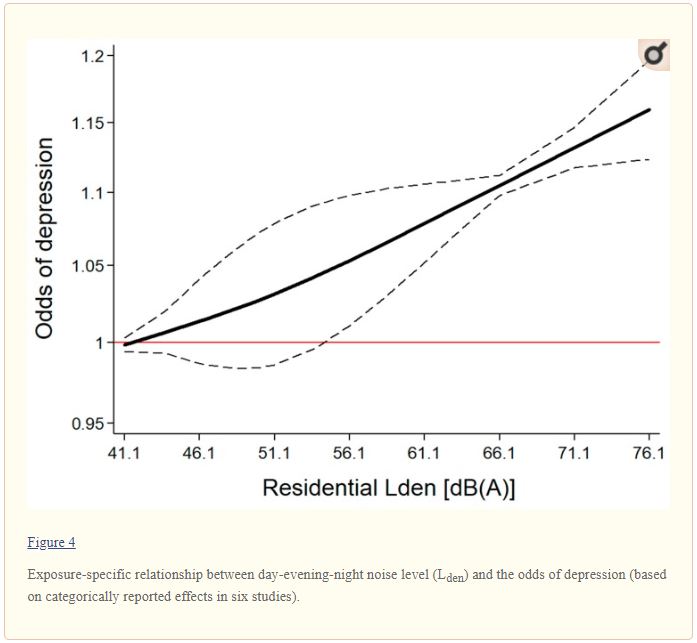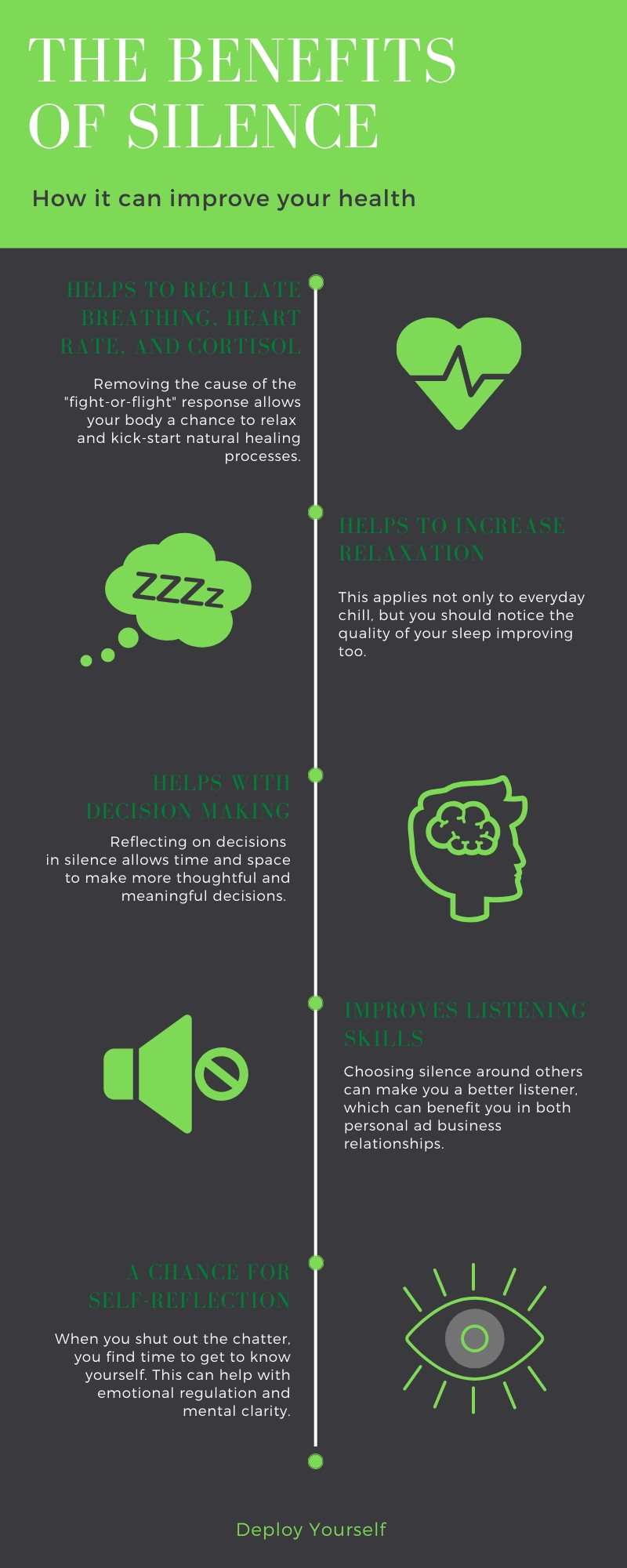Let me start with a story to illustrate the benefits of silence
There was an old man whose most beloved possession was a watch left to him by his late wife. He treasured the timepiece and had it on his person wherever he went.
One day, in anticipation of his grandchildren arriving for a visit, he was cleaning out the spare room when he misplaced his watch. His grandchildren arrived to find him distraught and offered to help search the room.
With four children and two adults combing the room, it seemed ever more cluttered and crowded than before, and the watch was still not found. As the others left the room, shaking their heads, the youngest child remained and simply sat on a chair and waited.
A few moments passed and he walked out of the room with the watch in his hand! Overjoyed, his grandfather asked how he’d found it. The boy replied, “I sat in silence and listened for the tick-tock to lead me to it.”
“To a mind that is still the whole universe surrenders.” ― Lao Tzu
Silence is a difficult thing to justify in today’s world (1). Technology has progressed to the point where we are living action-packed lives. If the phone isn’t ringing, notifications aren’t beeping, and we aren’t watching the latest news, there’s an overwhelming sense of missing out on something important.
Have we forgotten the concept and benefits of silence? As the old adage “Silence is golden” says, it was once considered to be a valuable thing. In recent years and in our fast-paced lives, this has changed.
Have our lives become so busy that we have no time for silent moments? Or are we so afraid of silence that we purposely keep our lives filled with noise?

The Benefits of Silence
If you consider silence to be the absence of noise, it can be a little odd to think that something that essentially isn’t even a thing can have benefits. It’s true, though!
Here are 9 benefits of silence in our lives:
1. Calmer Mind & Body
When you remove the noise stress from your life, it gives your fight-or-flight response a chance to calm down. Your heart rate starts to slow down, your blood pressure lowers, and blood circulation improves (6).
When your body is in alert mode, it’s waiting to do take action to survive a threatening situation. With sound always around us, we find ourselves in a constant wired-up state.
Once the noise causing the stress is removed and you finally relax into silence, your body is free to do what it would normally do, and balance itself once again. As research has shown, even 5 or 10 minutes of silence can have a positive effect on the body (7).
2. Relaxation
If you’ve ever been on the verge of falling asleep and been woken by a sudden but small sound, you’ll understand how noise can affect relaxation.
Placing yourself in silence allows you to be fully present in the moment. No distractions can break your silence when you can’t hear anything!
3. Awareness In Decision Making
Silence invites reflection, and reflection allows you to make more thoughtful and meaningful decisions (8). It’s easier to become aware of the consequences of particular situations when you have uninterrupted time to think about them – and by uninterrupted, I mean free from technology, chatter, and noise.
4. Improved Listening Skills
Silence doesn’t only need to be practised when one is alone. Remain silent when around others and you will be surprised at what all you hear! Learning how to bring silence into your life can help improve listening skills (9) – something that is a valuable skill in both personal and business relationships.
5. Self-Reflection
When you’re constantly bombarded by outside information, it can be hard to know what lies inside us. Many of us simply don’t have time for introspection, and yet becoming self-aware has so many benefits – from mastering your emotions to being more comfortable in your own company.
Spending time in silence allows for space to know yourself in the calm of a restless mind (10) There’s a reason even Bill Gates (11) takes a few weeks off every year to spend alone in silence.

6. Enhanced Creativity
You may be surprised to know that negative emotions can ruin creativity (12). Considering that noise can be an irritation and cause painful physical symptoms, too much noise can cause us to lose our creative spark.
Doing creative work in silence can be a great way of stimulating your creative streak. Also, removing one of the five senses (in this case, hearing) can cause the others to become more sensitive, which could flow over into artistic work.
7. Improved Sleep Quality
Considering the positive effects silence can have – a calmer mind, a healthier body, and improved relationships and communication – it’s no wonder you’ll get better sleep if you have more silence in your life.
If you can make your sleeping environment as quiet as possible, you’ll also fall asleep faster and have less chance of being woken by small sounds.
8. Increased Focus
You learn to be aware of your own thoughts and emotions in silence. This, in turn, leads to being more focused. When we’ve become used to the quiet, it gets easier to direct our mind to whatever we want or need to focus on at the time.
Also, outside noise is a distraction! It’s hard to work properly when you’re always being interrupted by sounds. Bringing in silence can improve your focus, and even if you’re still working in a noisy environment, you will not be as bothered by the noise.
9. Healing of Mind & Body
When your body is no longer in fight-or-flight mode, you’re more relaxed, making better decisions, have a creative outlet, are learning about yourself, and getting better sleep. Your body and mind begin to heal in silence.
Studies have suggested that the brain actually grows when we spend time in silence.
Why We Struggle With Being Silent
If you stop and listen, you’ll notice being surrounded by a lot of noise every moment. Traffic, crowds, the chatter of a conversation, phones ringing, that music coming from somewhere… There’s always some sound. Even at night, when most people consider it to be “silent”, there is a surprising amount of sound.
The more technologically advanced we become, the less silent the world around us is (2). Every sound has a purpose. The TV in the background makes sure you don’t feel so alone. Music in your back pocket means that you have something to see you through every mood. The zing of the phone means someone has made contact with you.
This “usefulness” of sound highlights a prominent modern-world issue – the fact that we’ve evolved to want instant gratification in everything we do, from fun to work to relationships. Why?
Whether it’s the first bite of that hamburger, the satisfaction of being liked by someone you just met, or the chime of your phone when a message comes through, that feeling of instant gratification sets off a rush of dopamine (3) that makes you feel good.

In the past, drugs and food were the big dopamine spikers – you can see the effects both have in the picture above. Today, the ping of a phone or the pop-up of an email has the same effect on our brains.
There is no instant gratification with silence—and that’s the biggest reason we struggle to deal with it today.
Because of this, it has become something that almost doesn’t exist anymore. When we do encounter it, we don’t know what to do with it. It’s far easier for us to break the silence than to sit through it.
The Harmful Effects of Noise
You may be surprised to know that silence has some amazing benefits. To really understand the significance of this, you need to understand how noise affects us in everyday life.
Studies have shown that people living in areas with high noise levels are more likely to suffer from increased stress levels, depression, and heart conditions (4).
Imagine living next to a train stop. You constantly hear the crowd’s chatter, the loudspeaker calling for passengers, and the train arriving, squeaking and rumbling on the tracks. There are some specific problems that come into play here, such as:
- Your sleep is constantly disrupted, so you’re not getting enough rest (ie. the body and mind are not healing as they should).
- Your communication with your family may be more difficult, leading to misunderstandings and conflict.
- Children may struggle to learn correctly, as their hearing is impaired.
Your response to external audio stimuli is actually an important survival mechanism (true for both loud, sudden sound, and more constant background noise (5). The problem is that when you are always surrounded by noise, your fight-or-flight response never really backs down.
“Paradoxically, the ability to be alone is the condition for the ability to love.”
—Erich Fromm

Incorporating periods of silence into your life regularly can be a sort of therapy to reduce stress and start bringing some forgotten goldenness to your days!
How To Add More Silence To Your Day
It’s not hard to add a few minutes of silence to your day. A pair of noise-cancelling headphones is also one way to experience silence in a noisy world.
“Nothing, to my way of thinking, is better proof of a well-ordered mind than a man’s ability to stop just where he is and pass some time in his own company.” ― Seneca
1. Meditation
Don’t be fooled into thinking meditation is a New Age or monks-only thing. It’s a wonderful, meaningful activity (13) to clear your mind, balance your emotions, and prepare yourself for the day (or reflect on the day passed).
Taking 5 minutes every morning to focus on your breathing and become aware of your surroundings is a great way to spend just a short time in silence.
2. Exercise
Exercise can be a way to spend some silent time daily. Focusing on how your body feels, or which muscles are moving is a way of meditating.
This is a perfect opportunity to spend some time in silence. Put your headphones on and concentrate on your exercise, with no external distraction.
3. Listening
We have conversations every day! Whether you’re talking to your parents, your children, your pets, or your colleagues, this is also the perfect time to go shhh.
Take care to really listen – not just hear. Make an effort to not speak unless necessary. You may be surprised at how much you listen.
4. Silent Breaks
Taking intentional silent breaks during your day can be a mood-saver. Just 5 to 10 minutes of distance from the hustle and bustle of work can be enough to relax and reframe your mind.
Take your silent breaks where you need them. Your colleagues and family may find you more relaxed once you start taking regular silent breaks during the day.
5. Journaling
Journaling can be a very therapeutic exercise (15), and is another great exercise to be silent and reflect. When I do it, I prefer doing my journaling in the evening before bed. This allows me the opportunity to reflect on the day.
Journaling in silence allows you to focus entirely on what you’re writing. The act of writing paired with calming silence can be effective in bringing peace to the mind.
6. Nature
A daily walk in nature has proven health benefits (16). It’s also a lovely environment in which to practice being silent. While this may be different from the concept of true silence, listening to the sounds of nature is a different form of meditation. After moving to Amsterdam, I start taking regular walks of the city during the day. Today these 5-15 minute walks are my favourite moments of the day.

7. Reading
Reading is one of those activities that can transport one’s mind to another place. You only need to read a few pages a day without background noise to get an effective mini-meditation!
When Not To Be Silent
Although silence can add a new meaning to your life, there are some cases when staying silent can do more harm than help.
1. In The Face Of Injustice
“Bad men need nothing more to compass their ends, than that good men should look on and do nothing.” ― John Stuart Mill
When you do, or say nothing, you may as well not be there. Silence serves no good purpose in the face of injustice. Speaking up when something isn’t right can be hard to do – there is often very real risk involved – but we all must speak up against wrong.
Silence benefits nobody in this case. Speaking up not only provides support to someone who may need it, but it also allows you the opportunity to grow emotionally and build courage.
2. When Your Conscience Tells You to Speak Up
Everyone has a conscience (17) – that feeling deep inside that tells you the difference between right and wrong.
When you practice silence often, you will be more in touch with your conscience. When your conscience tells you to speak out, there’s usually a good reason – and you should listen.
“It is a sin to be silent when it is your duty to protest.”
Abraham Lincoln
Conclusion
The World Health Organization recently gave noise pollution the unsavoury description of being a “modern plague” (18). It’s very clear that the constant barrage of noise we’re subjected to, whether overwhelming or subtle, has an effect on the way your brain operates – and in turn, your quality of life.
The fact is, your health is negatively impacted by the amount of noise you’re exposed to every day. The good news is that it isn’t hard to start taking a few small steps to increase the silent moments in life. You’ll start to see the positive change and the benefits of silence almost immediately.
Have you found it challenging dealing with noise in your life? Share your struggles with noise and your own ways to add silence in your life in the comments…


Great article Sumit..loved it word by word… thanks keep continuing your quite journalism .
Hi Sumit,
This has to be the best article you have written to date! Also loving the pictures you have put in as they just add to the article.
What every inspired you to write this article like this, I would have to say keep doing it! Absolutely loved this one!
Great article – really insightful. Put into words what I have carefully crafted into my life. Thank you